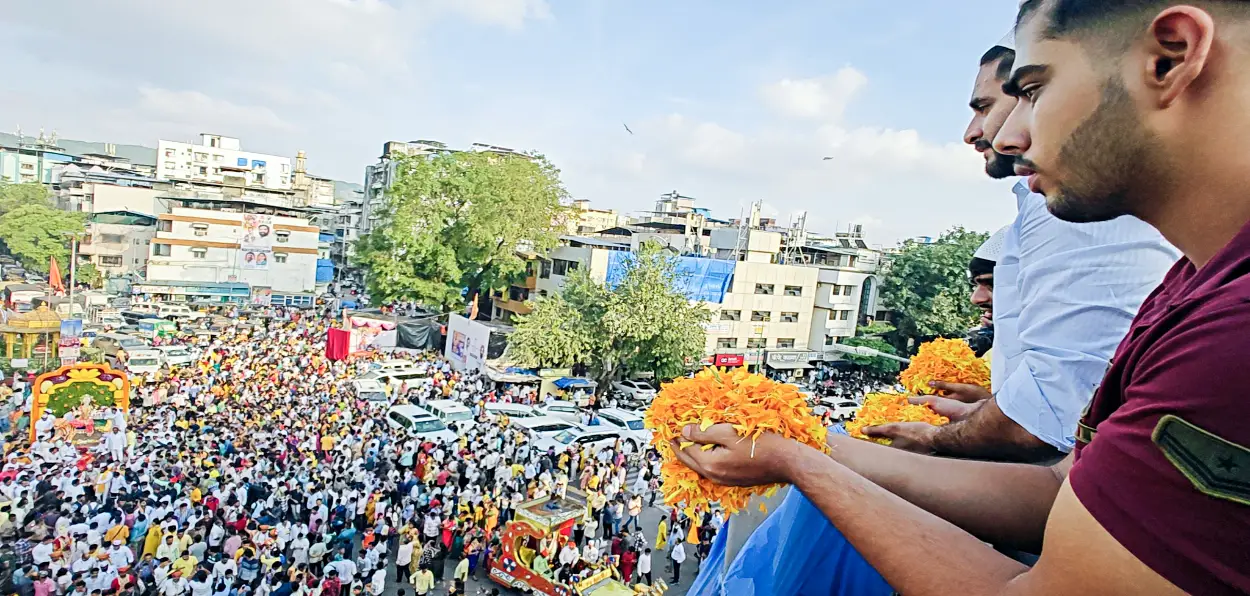
Shujaat Ali Quadri
Muslim leaders participated in the making of the Indian Constitution, the supreme legal document of our country, but the demagogic religious figures have prevented Indian Muslims from fully aligning with it.
The Constitution is a covenant that all citizens of a country have agreed to adhere to. It’s a guarantee of equality to all, a shield protecting the weak and holding the mighty accountable.
Muslims of India have dutifully followed the Constitution, yet their reverence or preference has been to religious texts that remain popular as per the sectarian orientation of a Muslim section, even as the original Islamic texts have always been in harmony and not in conflict with the Constitution.
Interestingly, Muslims publicly only recently invoked the Constitution during the Citizenship Amendment Act (CAA) agitation, when they feared the probable loss of citizenship of millions among them.
It is indeed a sad commentary on a community whose top leadership was at the vanguard of shaping the Constitution that was so painstakingly promulgated by sifting through the best of canons from across the globe.
Maulana Azad, Sir Syed Muhammad Saadullah, and Tajamul Hussain – members of the Constituent Assembly- contributed to India’s Constitution.
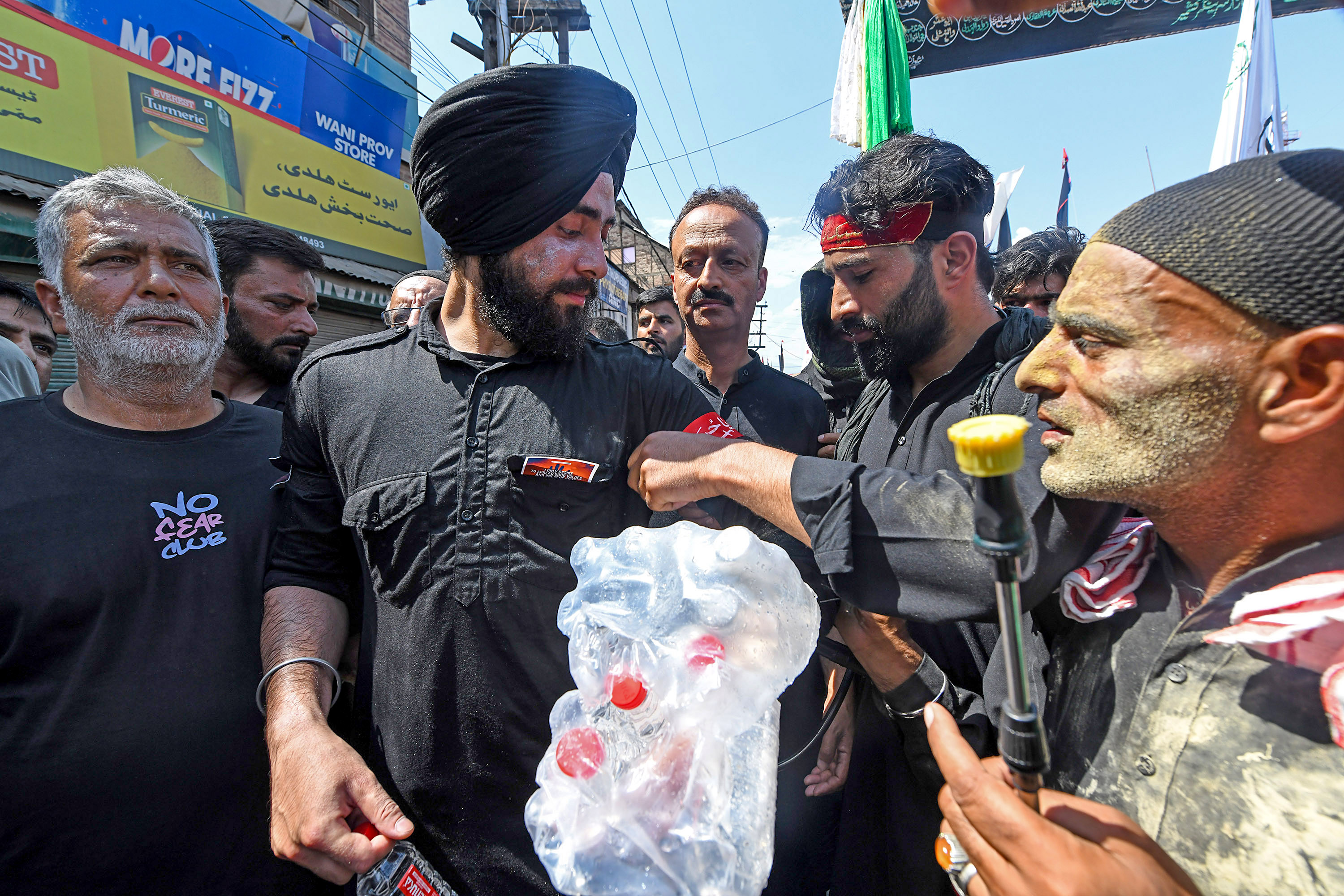 A Sikh man participating in Ashura procession in Srinagar
A Sikh man participating in Ashura procession in Srinagar
These dignitaries were well-versed in the details of religious injunctions and saw in the Indian Constitution nothing that would forbid compliance with Islam concurrently with the religious books.
Their presence in the Constituent Assembly led to the inclusion of some key provisions, such as equality before the law (Article 14), prohibition of discrimination based on religion, race, caste, sex, or place of birth (Article 15), and guarantee of freedom of religion (Articles 25–28), in the Constitution. These also include guarantees for the protection of the cultural, educational, and linguistic rights of all Indians, including Muslims.
However, the 75 years after independence saw Muslims clinging to regressive clerics who still believe that India is under the Colonial and Mughal rules. They have failed to align the community with the new vision of Independent India.
Worst, they almost had a hegemonic control over the Muslim masses, and managed to mislead them into misinterpreting Islamic texts. This happened due to vested interests.
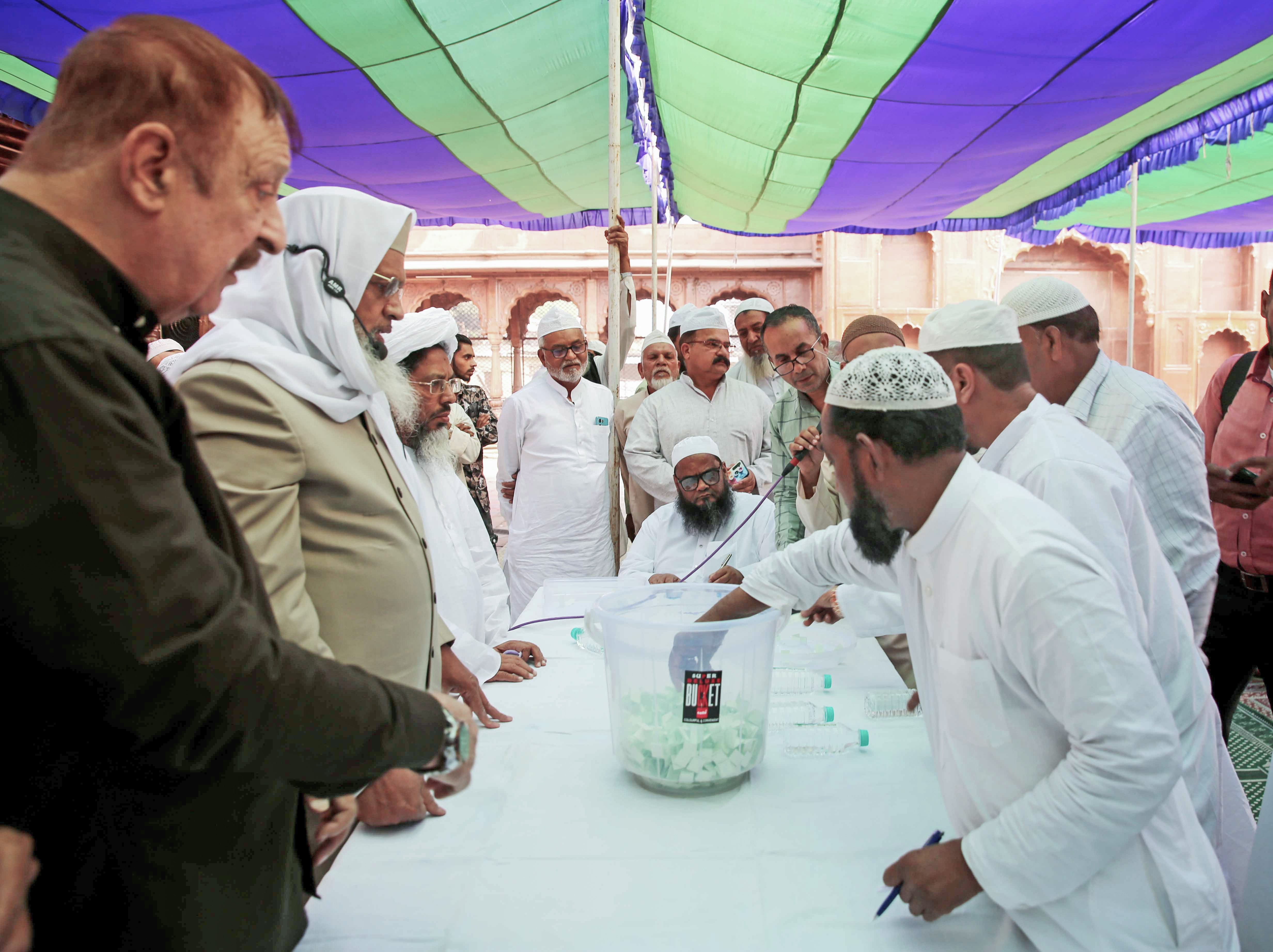
Clerics overseeing a lucky draw for allotting accommodation to Haj bound pilgrims in Bhopal
As a result, the societal reforms have been either sparse or obstinately decremental, and calls for modernisation and reform have been repeatedly resisted by the masses.
The reality stares at you in a Muslim neighbourhood. Visit the place and you will realise how a large section of the population is in the grip of demagogic religious figures, their hackneyed beliefs that were coined only a hundred years or so ago.
These self-acclaimed authorities on Islam – within both Sunni and Shia streams – are all over the place - community fora, television studios, and most prominently on social media. Sometimes, even such figures from Pakistan are followed as much in India as indigenous maulvis.
For years, a portion of Muslims followed the hard-line doctrine of Jamaat-e-Islami that had declared modern democracy as “anathema” to Islamic principles of governance. Some of its organisational contours, though, still resonate separatist tendencies.
Similarly, a section of Indian Muslims has followed clerics groomed in Wahhabi moorings. Such clerics have openly called for the establishment of Khilafat (Caliphate) in India and the world.
Some have even persuaded their followers to embark on the “conversion” of their non-Muslim compatriots. These two theological thoughts have been prevalent despite their disastrous consequences
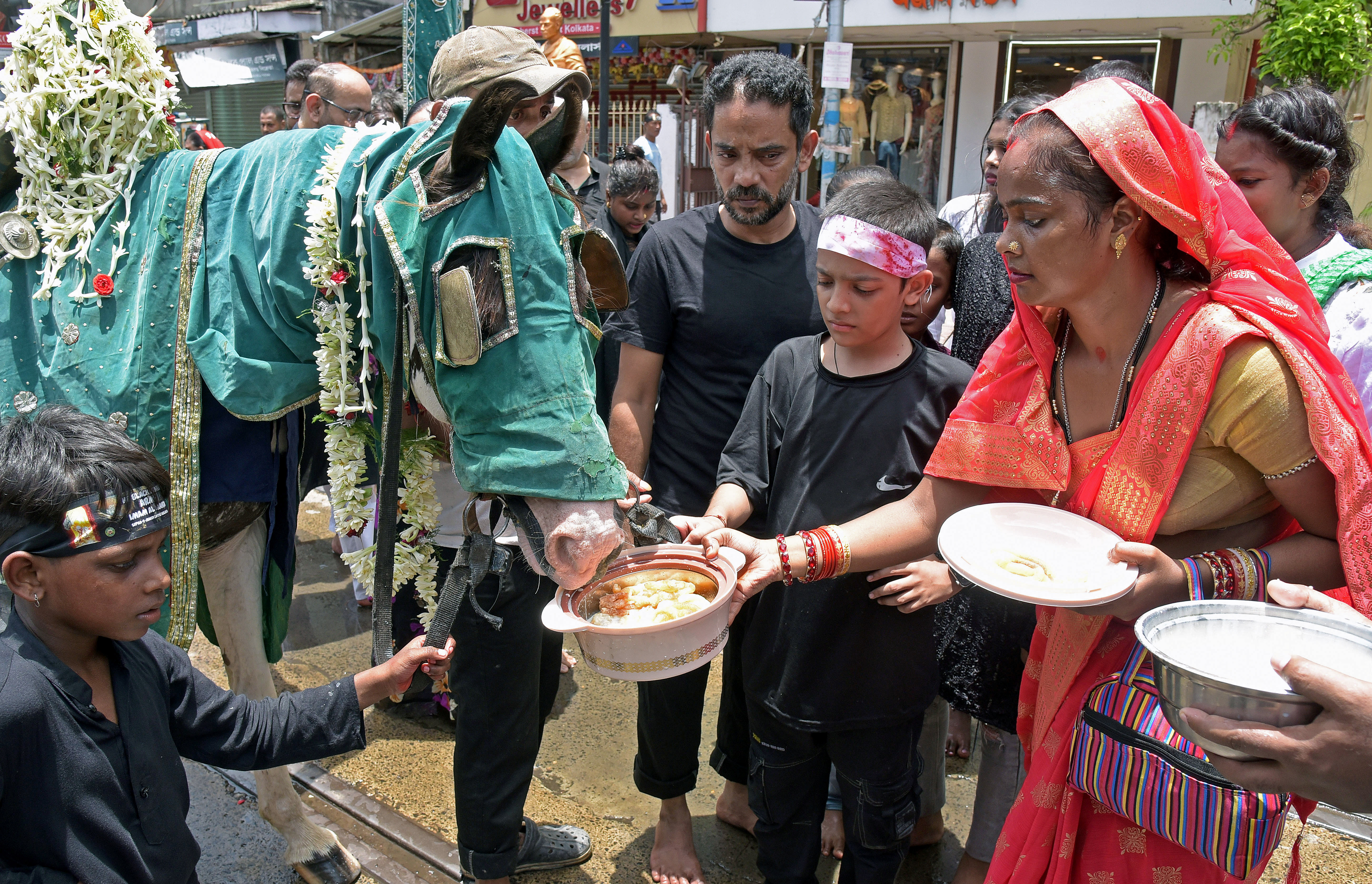 Hindu women feeding the horse during the Muharram porocession in Kolkata
Hindu women feeding the horse during the Muharram porocession in Kolkata
In recent years, such clerics have slowly disappeared and their views, too have been thrown into obscurity, but even their residual presence is enough to create trouble.
In this backdrop, embracing the Constitution tightly, promoting secularism, and initiating intra-community reforms are the best possible remedies to correct the ills of the past.
Strengthening secularism would not only enhance Muslims’ social standing but also contribute to India’s unity and progress. To align with the Constitution, Muslims must reform their personal and traditional laws in the light and spirit of laid down canons.
The community must champion reforms ensuring equal status for women. There must be much greater emphasis on women’s education, and that their voice matters in society.
Reform should not be seen as a betrayal of Islam but as its true fulfillment. The Quran emphasizes welfare, progress, and societal well-being. Therefore, there must be greater debate among Muslims on ways to adapt to modern times.
However, these reforms must be community-driven and not enforced by governmental fiat. Enforced reforms will be met with resistance and therefore fail. Muslims are touchy about their personal laws.
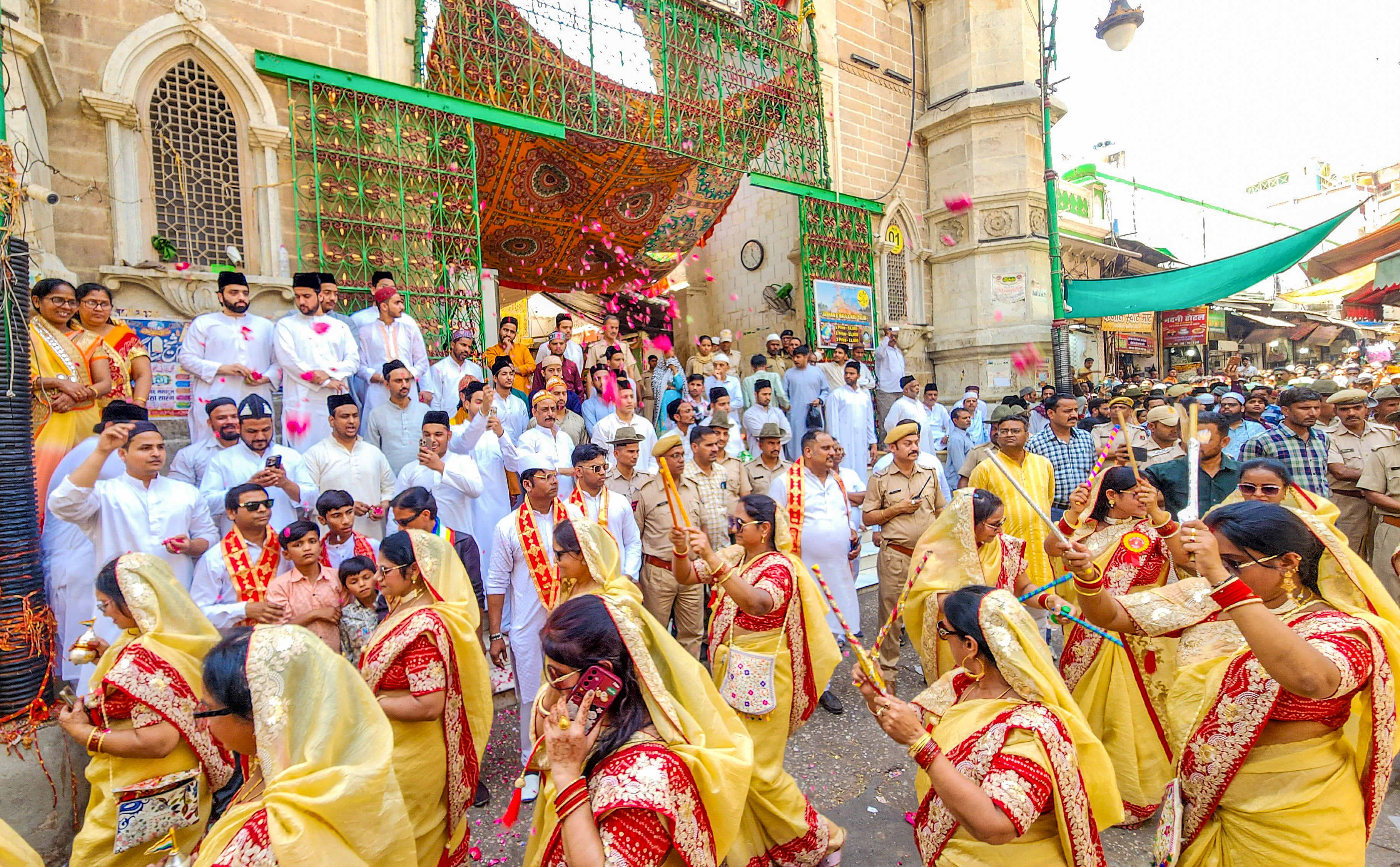 Muslims shower petals on a procession of Jains on the occasion of Mahavir Jayanti in Ajmer
Muslims shower petals on a procession of Jains on the occasion of Mahavir Jayanti in Ajmer
Muslims may take a cue from Parsis in India. They are also a minority, albeit a minuscule one. They have amalgamated into India as sugar dissolved in milk, making it sweet and delicious.
It is not recommended that Muslims should turn experts on the Constitution overnight, but they must make it a vision for their collective life that the Constitution becomes their leading light. The discussions in their societies must revolve around issues that directly involve some constitutional angle.
It will foment in them a knowledge-oriented attitude. They will slowly turn wary of religious clichés that are chasing them in the form of ideologies propagated by irrelevant clerics.
The community, its leaders, and opinion leaders must understand that they are an indivisible part of the Indian nation. In keeping with the inclusive spirit of the Constitution, they must integrate and assimilate into the Indian mainstream.
READ MORE: Izhar Mubashir wins Bal Sahitya Puraskar 2025 for children's literature
Muslims in general must accept pluralism, fairness, and justice as the basis for living together in dignity and security as the basis of nationhood. The Indian Constitution naturally inculcates such values. If Muslims follow this lead more forcefully and almost with a missionary zeal, it will be the right direction for the community at the right time in history.
Dr. Shujaat Ali Quadri is the National Chairman of the Muslim Students Organisation of India MSO
